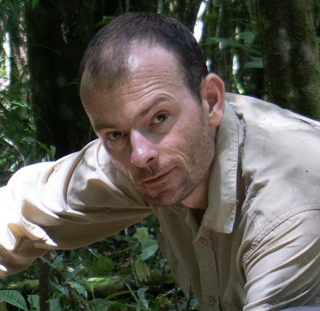James' PhD was in bird flight biomechanics, and his current post-doctoral employment supports his research on malaria epidemiology. James also has a great interest in biogeography and this is what led he and his team to the Cyclops Mountains of Indonesian New Guinea.
The purpose of Expedition Cyclops was to survey the arthropod, reptile, amphibian, and mammal fauna of the Cyclops Mountains - as well as to conduct a thorough geological survey – so that we can better understand the evolutionary origins of New Guinea’s contemporary biodiversity
While enduring leeches in eyes, earthquakes, malaria, and snakes marauding through camp, the team climbed over 11,000 metres of mountain to deploy 80 camera traps and collect thousands of biological specimens for their research.
A tantalising possibility was that Expedition Cyclops might rediscover Attenborough’s long-beaked echidna. Not seen for 62 years, this echidna is a member of the enigmatic egg-laying mammals called monotremes, a lineage that has been evolving independently of other mammals for around 200 million years.Only four monotremes are known to have survived to the modern day - or perhaps it is five? James will reveal results from the search for the 'lost' echidna.

